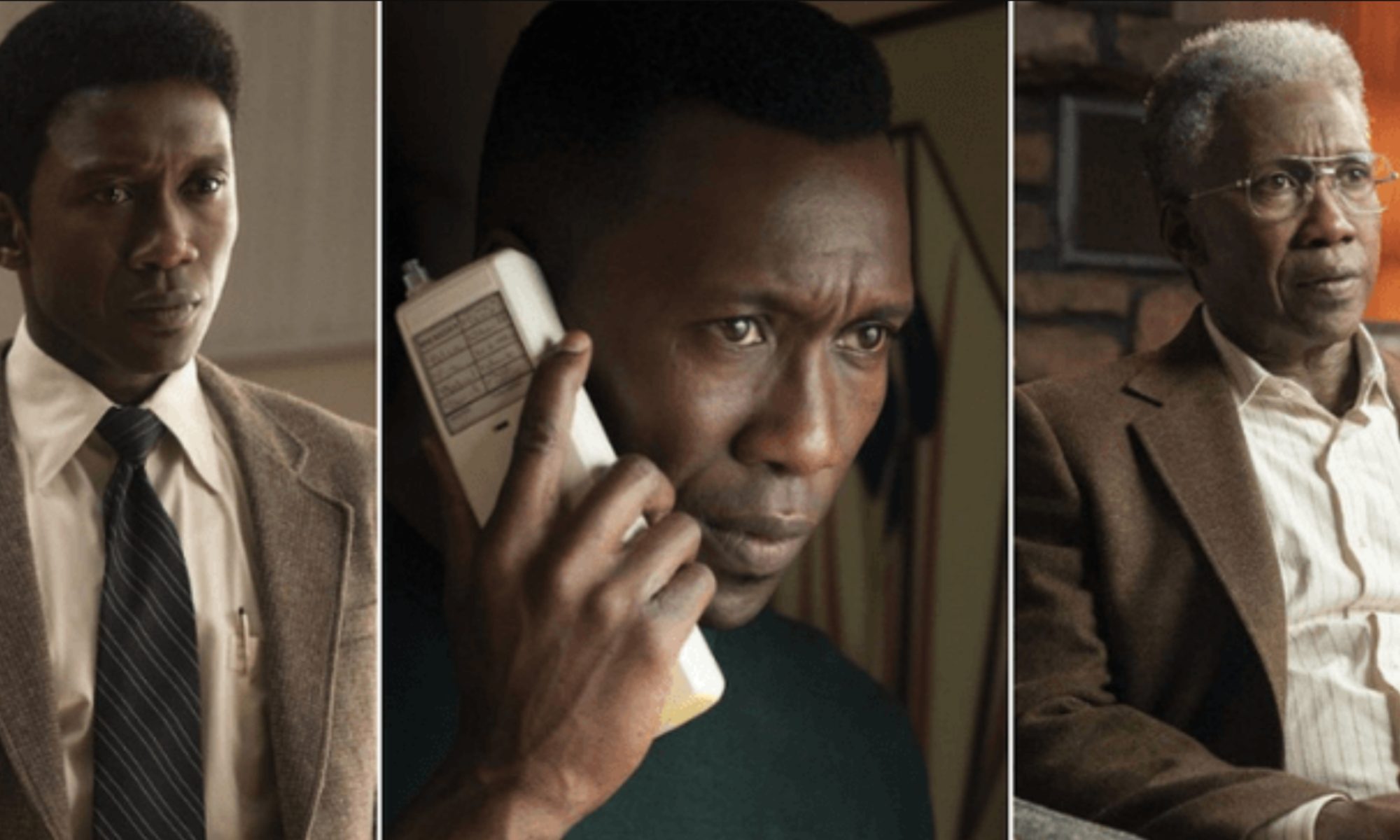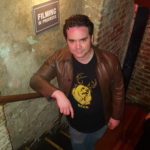
Let me start this off by saying I was wildly wrong about Stephen Dorff, and I’ll eat a big ol’ heaping pile of crow about that right now, beak and all.
Now that that’s out of the way…
True Detective Season 3 is a vast improvement on Season 2, and with the sort of human, sincere touch that was bereft in both the first and second seasons. In see, the lack of genuine warmth meant an emphasis on the mystery itself, as well as the metaphysical underpinnings and lamentations on philosophy and masculinity (which, mind you, isn’t a knock on it. Season one remains some of the finest long-form storytelling in the modern Golden Age of television). Season two expanded on the metaphysical aspects, and a labyrinthine mystery, but failed to distinguish its characters in any meaningful way; as a result, each character sounded and philosophized in the exact same way, bereft of any sense of individuality. Season three avoids that pitfall by focusing solely on the human, emotional cost of the central mystery.
As I wrote in the season premiere, Mahershala Ali is phenomenal as Wayne Hays; his understated performance sells Hays as a man who has seen some shit in Vietnam, and continues to see some shit as a detective. While this doesn’t make him a dour character, more episodes than not this season feature plenty of instances of Hays glowering, distancing himself from the subject of his interrogations, or keeping a detached professionalism even when going further down the proverbial rabbit hole with his partner, Roland West (Dorff). Contrasting against this is his interaction with his wife, Amelia (Carmen Ejogo); we see them from the beginning of their courtship, through their eventual marriage and child rearing.
In these moments, Ali brings on a simmering charm that seems so rare in his television work (Cottonmouth was a long time ago, it seems), and there’s a self-assured sense of ease to his smile that’s endearing. Ejogo, to her credit, is able to verbally spar with him with veritable ease; she can lob accusations as well as any man, and is able to intimidate even this veteran with her self-assured poise. Thankfully, we never see the end of their time together, and the series wisely ends their story together during a flashback.
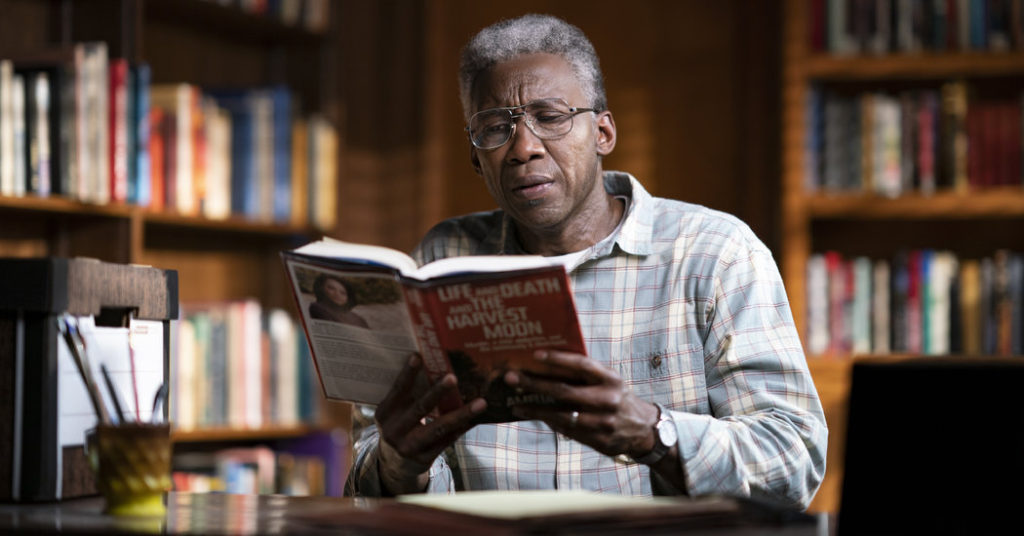
Stephen Dorff…holy crap. I could not have been more wrong about my initial reaction to his character if I had said he was a paraplegic Martian dominatrix. I had no idea this man had that kind of work in him, and watching the different phases of Roland’s life unfold simultaneously — and seeing the minor tweaks to the character Dorff employs — was at turns heartbreaking and endearing. Even with old-age makeup, Dorff (and Ali) is able to express the sort of resentment and pain that would be difficult to portray under normal circumstances. It says something that one of the best pieces of character work from Dorff in this season involves crying over a stray dog…
But what about the mystery of the Purcell children? Julie’s disappearance and Will’s murder? Coasting through different clues and shifting (and fading) memories, by the end of the season it is clear that the mystery itself is of little importance; what matters is the effect such a tragic situation holds on the small Arkansas town, and to the Purcell family themselves, to say nothing of Hays and West. Scoot McNairy, playing Tom Purcell, does phenomenal work here as well; we feel him coming apart much moreso than seeing it; that man can play emotionally devastated in a way rarely seen on television, and he wears his palpable grief in every single scene he’s in (although a character development of his is handled so off-handedly, and of seemingly little consequence, it seemed odd it was included at all).
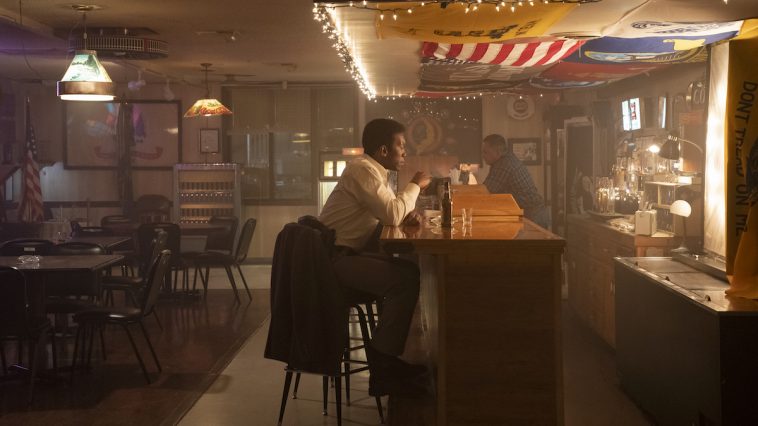
Racing to finally discover what became of Julie Purcell, the now-nearly-senile, Alzheimer’s-suffering Hays recruited Roland to, as he put it, use his mind and memory to finally put this final demon to rest. Here, one of the underlying themes of the season is worked perfectly: what is truth, if memory is faulty? And that question is encapsulated in one of the best scenes of the series so far: the elder Hays drives to West’s home, seeing him for the first time in 25 years, to ask him for help. West, angry at the silence and distance between the two of them — brought upon by a past act they both committed together — rages at his old partner, insisting to let the Purcell mystery alone.
And here Hays breaks down, the first time we really see how their relationship had affected each other, and the first time he truly acknowledges the extent of his condition, as he says (as a paraphrase), “I don’t know what I done to you, but if you’re mad at me, I must have done something. I just don’t remember what. And for that I’m sorry.” And this becomes a recurring occurrence: the elder Hays just accepting that a piece of information must be true, since he can no longer remember. And, crucially, this comes into play in the final act of solving the Purcell case.
****SPOILERS***
***SERIOUSLY. SPOILERS…CRUCIAL TO THE DISCUSSION, BUT SPOILERS***
And with his memory fading, the show seems to say that the ultimate fate of Julie Purcell doesn’t matter. While he, alone, discovers that her discovered grave is empty, and while he, alone, uncovers her current address and happy married life, the elder Hays ultimately forgets this discovery (despite a brief recognition shortly before his son arrives). He stands in her yard, talking to her daughter, but without any clue as to where he is, nor, ultimately, who she is, either. Even the briefest glimmer of recognition (which we see more than it is articulated) passes into nothing. The past doesn’t matter, the show seems to be saying.
Whatever trauma and horror had been inflicted on Julie in her childhood, and throughout the decades, is just dead weight. So while the mystery Hay and West had been chasing had come to a sad conclusion from their perspective, it had led to something promising and happy in the larger scheme of things. Even the initial purpose of the Purcell children’s disappearance is uncovered to be the result of separate tragedy, and Will’s death an accident.
And from all that, comes a happy(ish) ending.
***END SPOILERS***
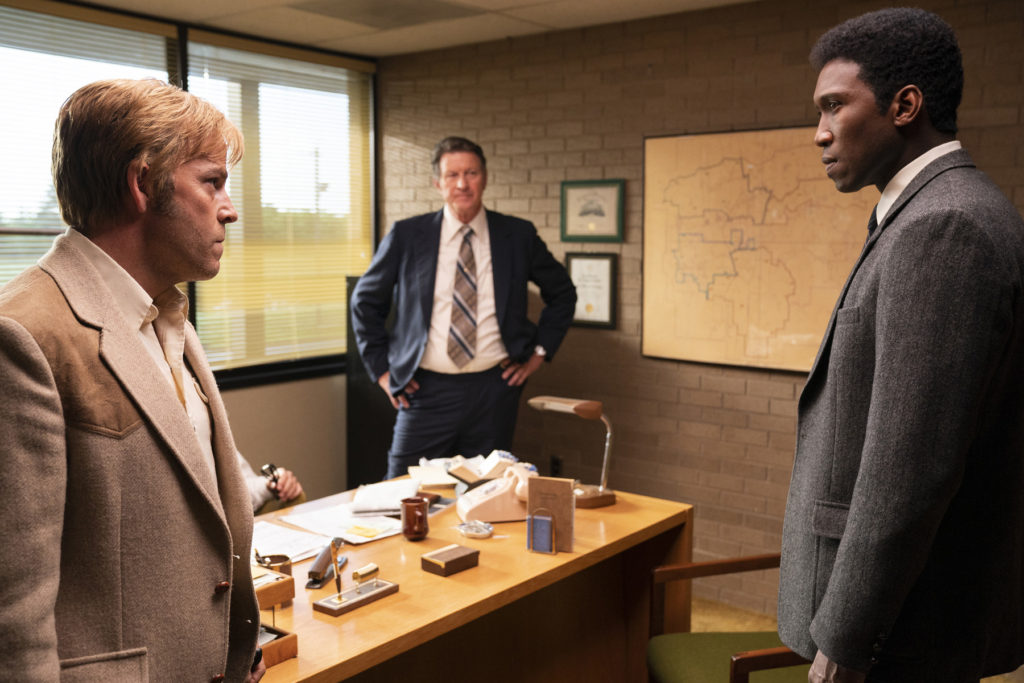
This slow-burn of a season featured great character work, purposeful direction, and sharp writing, with some of the most deliberate pacing thus seen on the show. Hopefully there will be a fourth season to carry on the tradition of using a Gothic mystery to dissect modern worries and psychological baggage. Producer/writer Nic Pizzolatto has struck a nice balance between macabre mystery and philosophical treatises, and scored some great actors to bring these characters to life. If you’re looking for the grim grittiness and weird fictional underpinnings of season one, or the despondent, surly violence and morose misanthropy of the second season, this season is a nice mix of the two.
While it’s sad to see the season end, and these characters return to the fog from whence they emerged, it was a ride while it lasted. Hopefully the fourth time will be just as great. 4.75/5 Bottles of Jack Daniels.
-J.L. Caraballo

